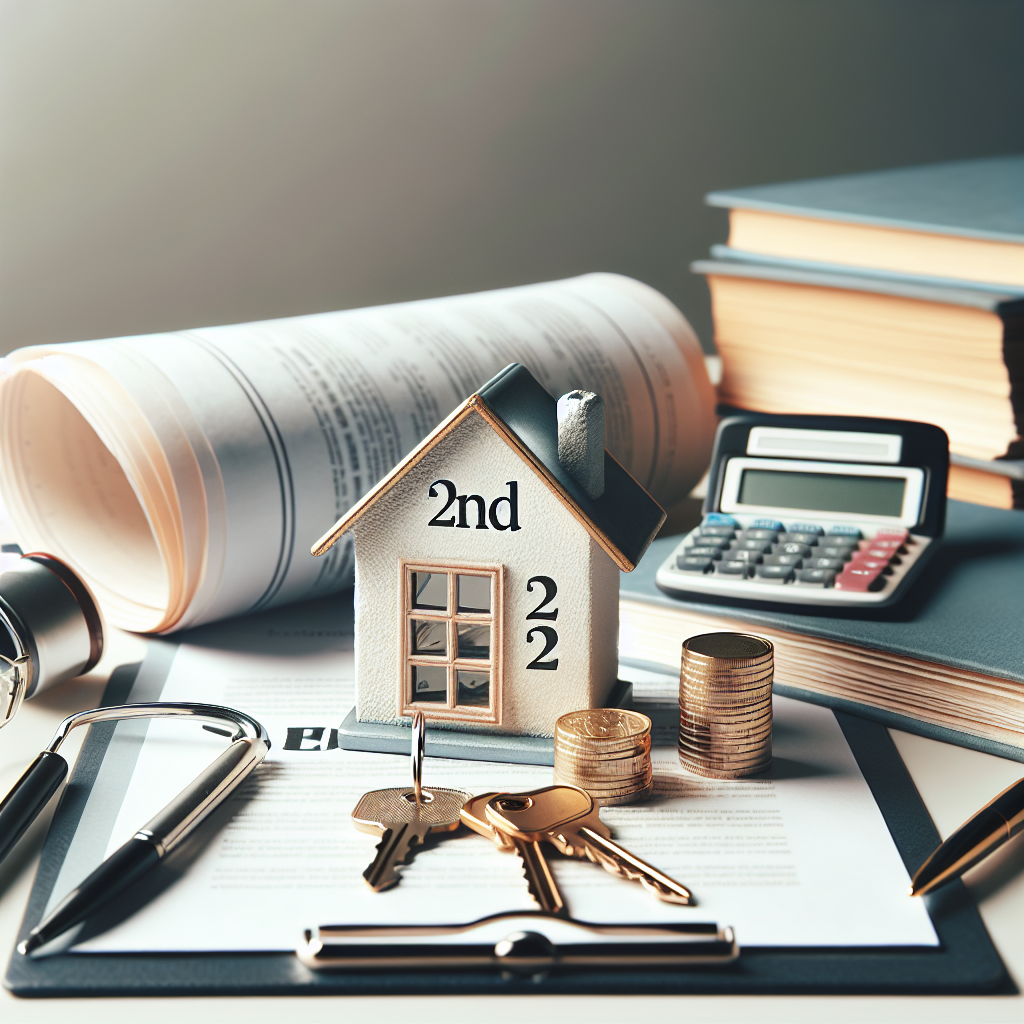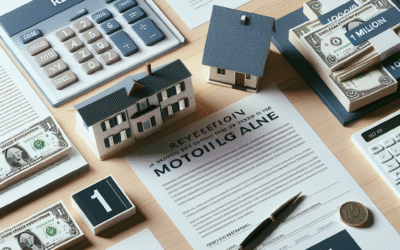What is a 2nd Mortgage?
Definition
A 2nd mortgage is a loan taken out against a property that has already been mortgaged. It allows homeowners to leverage the equity in their home to access additional funds. The term “2nd mortgage” refers to the fact that this loan is subordinate to the primary mortgage. In the event of foreclosure, the first mortgage lender is paid off first.
How it Works
When you take out a 2nd mortgage, you’re borrowing against the equity you have built up in your home. Equity is the difference between your home’s current market value and the amount still owed on your first mortgage. For example, if your home is worth $300,000 and you owe $200,000 on your first mortgage, you have $100,000 in equity. You may be able to borrow a portion of that equity through a 2nd mortgage.
Types of 2nd Mortgages
Home Equity Loans
A home equity loan is a lump sum loan that you repay in fixed monthly payments. The interest rate is usually fixed, providing predictable monthly payments over the loan term. This type of loan is ideal for homeowners who need a specific amount of money for a one-time expense, such as home renovations or debt consolidation.
Home Equity Lines of Credit (HELOC)
A HELOC is a revolving line of credit that allows you to borrow money as needed, similar to a credit card. The loan is secured by your home’s equity, and you can withdraw funds during a draw period, typically lasting 5 to 10 years. After the draw period, you enter a repayment period where you pay back both principal and interest. This option is flexible and works well for ongoing expenses.
Benefits of 2nd Mortgages
Access to Cash
One of the primary benefits of a 2nd mortgage is access to cash. Whether you want to pay for education, medical bills, or home improvements, a 2nd mortgage can provide the funds you need. This can be especially helpful in emergencies when quick access to cash is necessary.
Lower Interest Rates
2nd mortgages often come with lower interest rates compared to unsecured loans or credit cards. Since the loan is secured by your home, lenders may offer more favorable terms. This can save you money in interest payments over time.
Risks Associated with 2nd Mortgages
Foreclosure Risk
The most significant risk of a 2nd mortgage is the potential for foreclosure. If you fail to make payments, both the first and second mortgage lenders can initiate foreclosure proceedings. This means you could lose your home, which is a significant risk to consider before taking out a 2nd mortgage.
Debt Accumulation
Taking on a 2nd mortgage adds another layer of debt to your financial situation. If you’re already struggling with debt, this could exacerbate your financial issues. It’s essential to ensure that you can manage the additional monthly payments.
How to Qualify for a 2nd Mortgage
Credit Score Requirements
Most lenders require a good credit score to qualify for a 2nd mortgage. While specific requirements can vary, a score of at least 620 is generally considered acceptable. A higher credit score may secure you better interest rates and terms.
Income Verification
Lenders will also assess your income to ensure you can afford the additional mortgage payments. This typically involves providing pay stubs, tax returns, and other documentation to verify your financial stability.
2nd Mortgages vs. Other Financing Options
Comparing with Personal Loans
Unlike personal loans, which are typically unsecured and have higher interest rates, 2nd mortgages are secured by your home. This often results in lower interest rates for 2nd mortgages, making them a more affordable option for borrowing larger amounts of money.
Comparing with Cash-Out Refinancing
Cash-out refinancing involves replacing your existing mortgage with a new loan for more than you owe, allowing you to take out cash. While this can also access your home equity, it requires refinancing your primary mortgage. A 2nd mortgage, on the other hand, allows you to keep your existing loan and borrow against your equity separately.
Frequently Asked Questions about 2nd Mortgages
Can I get a 2nd mortgage with bad credit?
Yes, it’s possible to obtain a 2nd mortgage with bad credit, but your options may be limited. You might face higher interest rates, and lenders may require a larger down payment or additional documentation.
How much can I borrow with a 2nd mortgage?
The amount you can borrow with a 2nd mortgage typically depends on the equity in your home. Lenders usually allow you to borrow up to 85% of your home’s appraised value minus the amount owed on your first mortgage.
What is the interest rate on a 2nd mortgage?
Interest rates for 2nd mortgages can vary significantly based on factors like your credit score, the lender, and market conditions. Generally, they are lower than unsecured loans but higher than first mortgages.
How long does it take to get a 2nd mortgage?
The time it takes to get a 2nd mortgage can vary, but it typically ranges from a few weeks to a couple of months. This depends on the lender’s process and how quickly you can provide necessary documentation.
Is a 2nd mortgage tax-deductible?
In many cases, interest paid on a 2nd mortgage can be tax-deductible, particularly if the loan is used to buy, build, or substantially improve your home. Always consult with a tax professional for specific advice.
What happens if I can’t make payments on my 2nd mortgage?
If you cannot make payments on your 2nd mortgage, the lender can initiate foreclosure proceedings. This means you could lose your home, so it’s crucial to ensure that you can manage the additional debt before committing to a 2nd mortgage.
Conclusion on 2nd Mortgages
Summary of Key Points
2nd mortgages can be a valuable financial tool for homeowners looking to access cash or invest in their property. Understanding the types, benefits, and risks associated with them is crucial. While they offer lower interest rates and flexible borrowing options, the potential for foreclosure and increased debt should not be overlooked.
Final Considerations
Before deciding on a 2nd mortgage, carefully assess your financial situation and consider consulting with a financial advisor. Ensure that you can comfortably manage the payments and understand the long-term implications of taking on additional debt. With the right approach, a 2nd mortgage can help you achieve your financial goals.
For more information on mortgages, visit the Consumer Financial Protection Bureau.




0 Comments